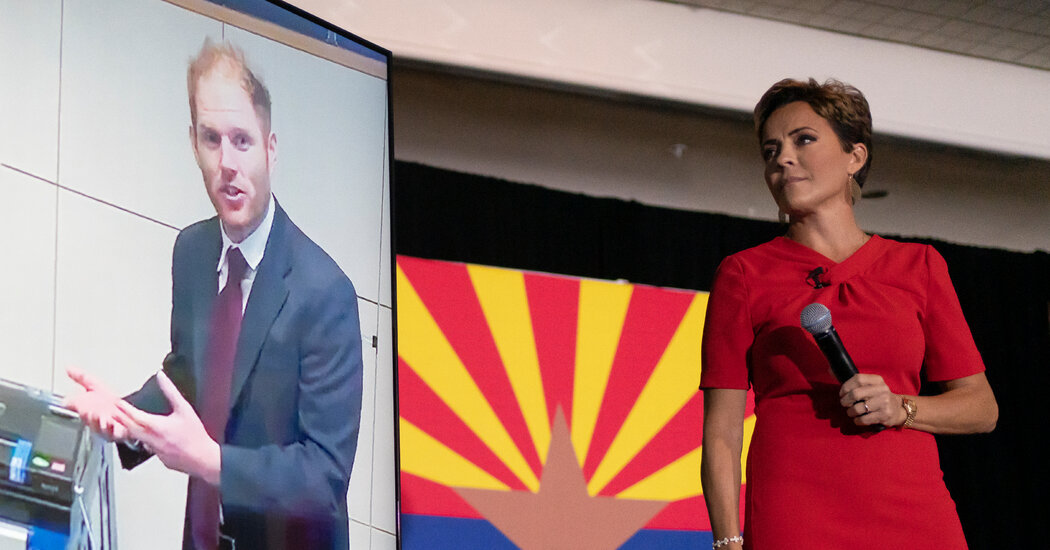Bogus Election Fraud Claims Still Run Rampant in Maricopa County

Nearly four years after Joseph R. Biden Jr. flipped Arizona blue, the state — and in particular its largest county, Maricopa — remains a hub for debunked claims of election fraud.
In 2021, Republicans pushed for a recount of the vote in Maricopa, a lengthy and chaotic process that failed to validate former President Donald J. Trump’s false claims that the vote had been rigged. A year later, Kari Lake, a close Trump ally who lost the governor’s race, baselessly claimed that her election had been stolen, too. She attacked state and local officials and filed a series of fruitless lawsuits seeking to overturn the result. The onslaught of threats against election officials hasn’t let up since, with meetings of the Maricopa County board of supervisors, which helps administer elections, often interrupted by angry attendees.
On Tuesday, lawyers for Ms. Lake indicated she would not dispute the facts of a defamation lawsuit that Stephen Richer, the Maricopa County recorder, had filed against her. Mr. Richer, a Republican, said in his lawsuit that Ms. Lake’s unfounded claims that he had helped rig the 2022 governor’s race against her had damaged his reputation and led to death threats against him and his family.
Such election conspiracy theories are hardly unique to Arizona. But they seem to be more durable and pervasive in Maricopa County, home to Phoenix, riling up residents long after campaigns have closed up shop. Disinformation researchers and election officials suggested that a confluence of factors — Arizona’s rapidly changing status from Republican stronghold to hotly contested swing state, the lack of a prominent Republican combating conspiracy theories as one did in Georgia, and the persistent reinforcement of false information — have all contributed to an environment where baseless fraud claims run rampant on the right.
“You put that all together, and it’s a recipe for disaster,” said Joshua Garland, the interim director of the Center on Narratives, Disinformation and Strategic Influence at Arizona State University. “Once you latch onto a narrative or worldview, anything that supports or facilitates that worldview or narrative you’re much more likely to accept.”
This article has been archived for your research. The original version from The New York Times can be found here.

